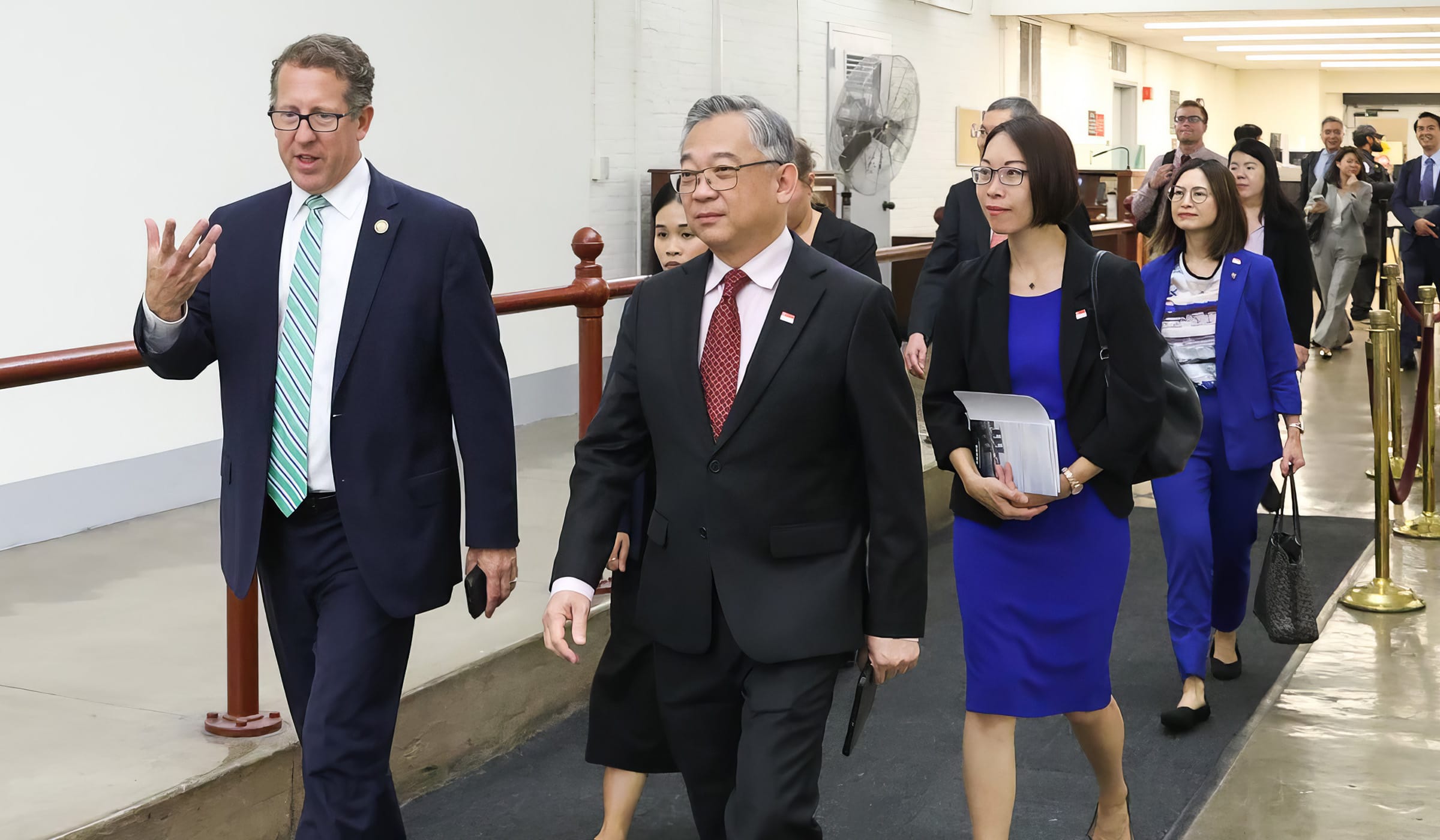Singapore DPM Gan Kim Yong came under fire from the opposition forces on the internet, with social media posts and an article on The Online Citizen (predictably) questioning how is it that the "special task force man" couldn't get a better deal for the country.
Of course these comments are made by those still bitter after the defeat he inflicted upon the Workers' Party's Punggol GRC team, being moved from Chua Chu Kang at the last minute to reinforce the constituency during the General Election in May.
The PAP promoted him as a crucial member of the cabinet, who is needed during the tough talks with Americans right after Trump announced his tariffs in April.
Now, to any reasonable person it is clear that Singapore couldn't have hoped to get a better rate than any other nation on this planet. Trump has set the baseline tariff figure at 10% and that was that.
It didn't even matter that the US has long had a trade surplus with Singapore.
However, it is quite clear that it could have gone far worse if mistakes in handling Americans were made. That's something those critical of the PAP don't ever consider.
It's funny how they often try to mockingly bring up Goh Chok Tong's words promising Swiss living standards in Singapore (which, by the way have not only been achieved but largely exceeded).
Why not, then, talk about the Swiss trading standards with the USA at the moment?
Unlike Singapore, Switzerland has been slapped with one of the highest tariff rates in the world by the Trump administration – 39%. Yes, about four times the base rate.
What's more, it was actually raised from 31% announced back in April, while nearly all other countries have managed to negotiate cuts (though never below 10%, of course).
The Swiss are, predictably, both worried and furious with their politicians for failing to seal a decent deal:

Quote from the Guardian article: "Switzerland, home to some of the world’s best-known luxury brands, was left stunned after the US president on Friday imposed one of the highest tariff rates in his global trade reset. Industry associations said tens of thousands of jobs were at risk.
Local media had reported that after three months of talks, negotiators believed they had secured a 10% tariff on exports to the US, a key market for Swiss products such as luxury watches, jewellery and chocolate but also machinery and pharmaceuticals.
But after a 30-minute call with Keller-Sutter on Thursday evening variously described as “bad-tempered”, “disastrous” and “badly misjudged”, Trump imposed a levy even higher than the 31% he had announced on his so-called “liberation day” in April."
The art of negotiation isn't only about knowing what to say – but what not to say. And accepting that you may be at the limits of your leverage. Especially when dealing with someone as unpredictable as Donald Trump.
Pushing too hard, when it is obvious that Washington wouldn't budge, could have resulted in a similar, punitive backlash.
Yes, unlike Singapore, Switzerland has had very large surplus in trade in goods with Americans, which the US president wants to bring down.
However, in proportion to bilateral trade it was about the same as it is with Japan, which secured a tariff of just 15%.
What's more, when you account for the large surplus in services that America has with the Swiss, the overall deficit is just a few billion dollars.
And yet, the mountainous haven for the rich in the heart of Europe has to grapple with the highest tariffs outside of Brazil and India – both of which have received 50% but only as a result of their respective political conflicts with Trump.
So, the right question to ask is not if Gan Kim Yong or anybody else in the delegation could have achieved the impossible, but whether they actually have managed to avoid an outcome far worse once Trump had a second look.
Fortunately, the "Switzerland of Asia" has yet again managed to do better than the country it once aspired to match. Isn't that something to celebrate?
Featured image: Gan Kim Yong / Facebook / taken by Kendrick Wong





